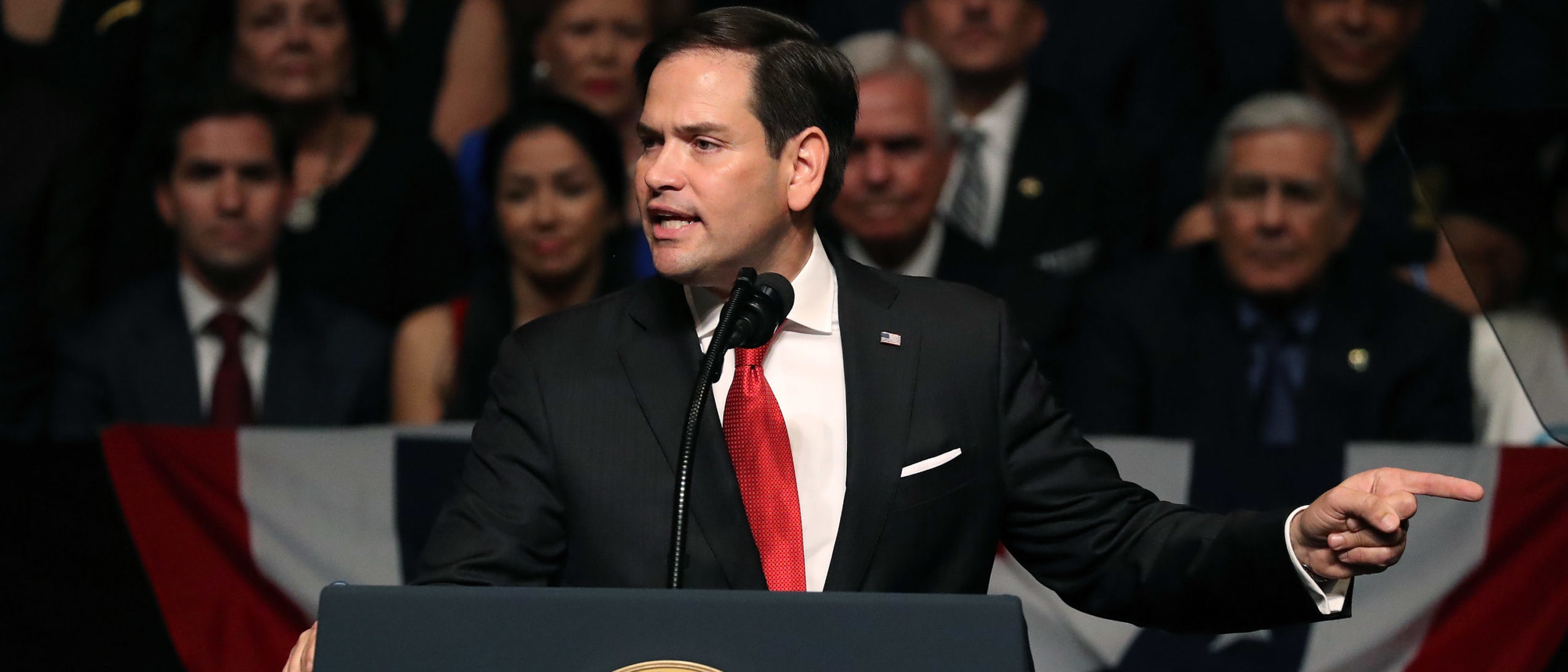Republican Florida Sen. Marco Rubio and Democratic California Rep. Ro Khanna introduced bipartisan legislation Tuesday aimed at rebuilding “critical” industries in the U.S. through “strategic coordination” among federal financing programs, according to a press release.
The National Development Strategy and Coordination Act will allocate $20 billion over the next 10 years to “supercharge” federal financing facility loans, while also creating a “cabinet-level” interagency committee that will devise and oversee a “National Development Strategy” every four years, according to the bill. The funds will be authorized by the Treasury Department’s Federal Financing Bank (FFB), and will be directed by the secretaries of Treasury, Defense, Commerce and others, which will task agencies with directing “existing direct loan and loan guarantee programs” to prioritize initiatives consistent with the strategy. (RELATED: EXCLUSIVE: House Lawmakers Introduce Bipartisan Bill To Prohibit Senior Federal Employees, Spouses From Trading Stocks)
“From the loss of good jobs, to a weakened industrial base, to shortages of basic grocery and pharmaceutical items, Americans are suffering from decades of misguided offshoring to countries like China. If we want to be a strong nation, we have to rebuild and invest in critical industries at home,” Rubio said in a statement. “This bill lays the groundwork by creating the roadmap, using existing tools within our government, to focus on and invest in things that actually matter.”
The bill will work to bolster America’s industrial capacity through supply chain resiliency, developing new technologies, driving regional economic growth in critical sectors and aiding job growth and development of critical manufacturing industries, according to a one-page summary of the legislation. It also would support industries “critical for national security.”

MIAMI, FL – JUNE 16: U.S. Sen. Marco Rubio (R-FL) speaks ahead of President Donald Trump announcing policy changes he is making toward Cuba.
In recent years, “serious vulnerabilities” to the U.S.’ economic resilience and national security have resulted from American industry being “undercut by unfair trading practices from non-market economies like China,” the summary said. The vulnerabilities were revealed during the pandemic as millions of Americans became aware of the dangers of over-relying on “hostile foreign nations” for basic goods and resources, it added.
The bill also includes provisions aimed at protecting intellectual property to ensure that funding is not provided to any company headquartered or controlled by the People’s Republic of China or any other “hostile” nation, according to the summary.
“For decades, we watched as American industry went offshore, and the federal government has only offered a Band-Aid to communities that have been left behind. What we need now is a national project to restore our nation’s manufacturing leadership and unify Americans around a shared purpose,” Khanna said in a statement. “I’m proud to introduce this bicameral, bipartisan bill with Senator Rubio to help fix our supply chain issues in the long term and invest in critical industries and good paying jobs at home.”
The Biden administration has recently restricted solar imports from China’s Xinjiang province, a region that allegedly utilizes slave labor, and pushed investments in American semiconductors. In September, President Joe Biden issued an executive order countering Chinese access to key technologies by restricting foreign investments connected to U.S. economic power.
All content created by the Daily Caller News Foundation, an independent and nonpartisan newswire service, is available without charge to any legitimate news publisher that can provide a large audience. All republished articles must include our logo, our reporter’s byline and their DCNF affiliation. For any questions about our guidelines or partnering with us, please contact licensing@dailycallernewsfoundation.org.


